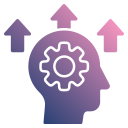Coding Bootcamps: A Path to Professional Growth
What Are Coding Bootcamps?
Intensive Learning Environment
Coding bootcamps are structured to immerse participants in a fast-paced, rigorous training environment. Sessions often run full-time, with days packed from morning till evening, pushing students to absorb large volumes of new concepts quickly. This intensity simulates the pressure of real-world tech jobs while promoting rapid skill acquisition. The collaborative atmosphere also encourages students to work together, solve problems in teams, and share insights, fostering a community of aspiring developers committed to professional growth.
Curriculum Designed for the Real World
Unlike traditional academic settings that may dwell on theory, coding bootcamp curricula are developed with direct input from industry experts and employers. The curriculum focuses on technologies, frameworks, and methodologies that are in high demand, such as JavaScript, Python, web development tools, and agile processes. By equipping students with these up-to-date, marketable skills, bootcamps aim to make graduates job-ready from day one, greatly increasing their employment prospects and relevance in the fast-changing tech landscape.
Accessibility and Inclusivity
A significant appeal of coding bootcamps is their commitment to reducing barriers to education and career opportunities. Many bootcamps offer flexible schedules, remote learning options, and scholarships to reach a diverse population, including those underrepresented in tech. This inclusivity fosters a culture in which people from various backgrounds can access career-changing skills, emboldening new voices and perspectives within the technology sector. In turn, this diversity enriches the overall learning experience for all participants.
The Benefits of Coding Bootcamps for Career Advancement
Fast-Track to Employment
One of the principal draws of coding bootcamps is the prospect of rapidly transitioning into a new career. While a traditional computer science degree might take four years to complete, bootcamps typically span a few months, allowing graduates to enter the job market quickly. Many programs cultivate strong partnerships with employers and actively assist students in building portfolios, preparing for interviews, and applying for roles. The result is a shorter path from education to employment, enabling individuals to pivot or advance in their careers with unprecedented speed.
Building a Network and Community
Networking is often as crucial as technical proficiency in tech careers. Coding bootcamps offer a vibrant community of peers, instructors, mentors, and alumni. Students collaborate intensively throughout the course, forging lasting professional relationships and support networks. Cohort members often stay connected after graduation, sharing job leads and advice. Additionally, many bootcamps actively engage alumni, industry speakers, and local companies, expanding each student’s professional network and opening doors to new job opportunities and collaborations.
Developing Practical, Portfolio-Ready Skills
Bootcamp students regularly engage in practical projects that mirror real-world development tasks. By working on team-based assignments and building complete applications or websites, they create tangible evidence of their learning. These projects form a professional portfolio that demonstrates capability to potential employers. Beyond coding, students learn vital soft skills—such as problem solving, communication, and time management—that are critical to workplace success. This blend of hands-on projects and interpersonal growth sets bootcamp graduates apart in a competitive job market.
Navigating a Demanding Schedule
The intensive nature of coding bootcamps demands significant time and energy. Students must be prepared to dedicate much of their daily routine to classes, independent study, and project work. Time management is critical for keeping up with the fast-paced material and deadlines. Effective strategies, such as consistently blocking out study periods, seeking help when needed, and maintaining a focus on weekly objectives, ensure that participants not only keep pace with the curriculum but also retain the knowledge and skills required for job readiness.
Adapting to Accelerated Learning
Learning to code is inherently challenging, even more so in a condensed timeframe. Students may struggle initially with absorbing new technical concepts and tools at a rapid rate. Adopting an adaptive mindset is essential—viewing setbacks as learning opportunities and maintaining resilience. Bootcamps often provide academic support, including mentorship and office hours, to help students master challenging topics. By embracing the iterative process of trial, error, and feedback, participants can grow their technical confidence and overall problem-solving ability.
Join our mailing list
